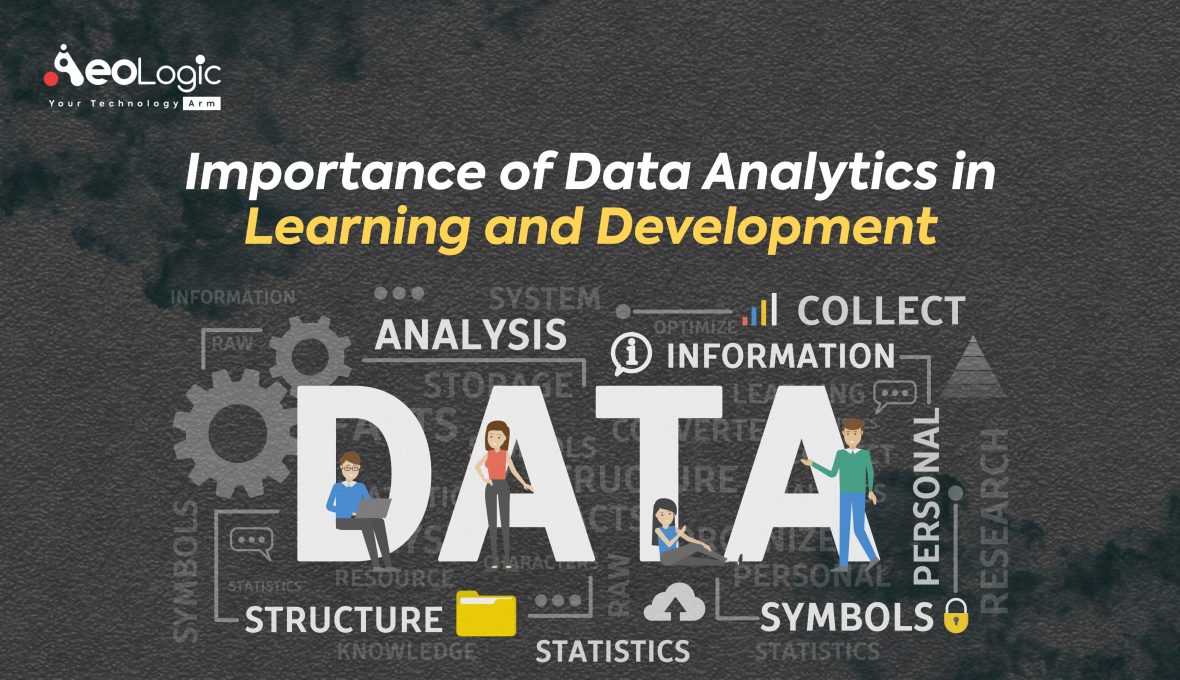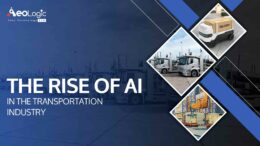In the digital age, data is often referred to as the “new oil.” Similar to how oil powered the industrial revolution, data is powering the information revolution. Specifically, in the realm of education and skill advancement, understanding the importance of data analytics in learning and development is instrumental in shaping the future of the education system and workplace training.
Before diving into the significance of data analytics in the learning ecosystem, it’s essential to comprehend the connection between these two entities.
What is Data Analytics?

Data analytics is the process of examining data sets to draw conclusions about the information they contain. These conclusions are often enabled through specialized systems and software. Data analytics techniques are widely used in commercial industries to enable organizations to make more informed business decisions.
Data Analytics in Learning: A New Pedagogical Approach
When we bring data analytics into the realm of learning and development, it opens up a wealth of opportunities. With the capability to analyze a large set of learner data, educators and trainers can gain unique insights into learner behavior, preferences, and performance. In essence, understanding the importance of data analytics in learning enables the creation of a more personalized, effective, and engaging learning journey.
Also Read: How to Elevate your Organization’s Use of Data Analytics?
Exploring the Importance of Data Analytics in Learning and Development
Let’s delve deeper into how data analytics is revolutionizing the learning landscape.
Personalization and Tailored Learning Experiences
One of the primary benefits of data analytics in learning is the ability to personalize learning experiences. Through analysis of learner data:
- Learning preferences can be identified, enabling the development of customized learning paths.
- Difficult areas can be highlighted, allowing targeted remediation.
- Successes can be tracked and celebrated, encouraging learner motivation.
Data-driven Decision Making
The importance of data analytics in learning and development also extends to decision-making. By analyzing data:
- Educators can determine which teaching methods are most effective.
- Organizational leaders can identify skill gaps and focus training efforts.
- Policymakers can make evidence-based decisions about education systems.
Improved Engagement and Outcomes
Data analytics can significantly improve learner engagement and outcomes. By using analytics:
- Engagement patterns can be detected, enabling real-time modifications to course material to maintain interest.
- Outcomes can be forecasted, allowing preemptive interventions to improve learner success rates.
- Feedback can be provided in real-time, facilitating immediate course corrections and improved learning.
Also Read: How Data and Analytics are Fueling the Retail Industry?
Case Study: The Impact of Data Analytics on E-Learning
The importance of data analytics in learning is particularly evident in the realm of e-learning, where digital platforms provide a wealth of data on learner interactions. One study found that data analytics applied to an e-learning system led to:
- A 30% increase in course completion rates.
- A 25% improvement in learner satisfaction.
- A 20% reduction in the time required to complete a course.
These impressive results highlight how effective the application of data analytics can be in the learning environment.
The Influence of Data Analytics on Learning Stakeholders

In the learning and development landscape, data analytics serves not only as a tool for instructors and trainers but also as an empowerment factor for various stakeholders within the learning ecosystem.
Bolstering Learners’ Autonomy
The importance of data analytics in learning extends to how learners can actively steer their educational journey. Insights from data analysis allow them to identify personal strengths and weaknesses, seek personalized educational resources, and command their learning pathway.
Guiding Parents and Guardians
For younger learners, data analytics equips parents and guardians with actionable insights. Understanding their child’s learning patterns, strengths, and areas for growth empowers parents to offer targeted assistance, enrich the home learning environment, and collaborate more effectively with educators.
Enabling Administrators
Data analytics can also be crucial for administrators who manage the learning institution or program. They can use data analytics to evaluate program efficiency, student performance, and faculty effectiveness, helping them make informed decisions that can lead to better learning outcomes and resource allocation.
Informing Policymakers
Recognizing the importance of data analytics in learning and development can also guide policymakers. Data insights can inform the creation of policies and regulations that address current issues in education, such as reducing achievement gaps and ensuring quality education for all.
Assisting Human Resource Professionals
In the corporate environment, human resource professionals can leverage data analytics in learning and development programs to assess and address skill gaps, evaluate the effectiveness of training programs, and strategically plan for future organizational skill needs.
Facilitating Career Counselors
Career counselors, too, can utilize data analytics to track a student’s progress, identify potential career paths based on a learner’s aptitudes and interests, and provide personalized guidance to help students make informed career decisions.
Each of these stakeholder groups can greatly benefit from data analytics, reaffirming its broad importance in learning and development scenarios.
Also Read: Unlocking the Potential of Datafication for Businesses
The Future of Learning: Powered by Data Analytics
The importance of data analytics in learning and development cannot be overstated. It’s not only revolutionizing the way we learn but also shaping the future of education and training. By harnessing the power of data analytics:
- Learning systems can become more efficient, productive, and learner-centric.
- Continuous learning can be facilitated, helping individuals and organizations adapt to the ever-evolving world.
- Learners can be better prepared for the future, with skills that are relevant to the rapidly changing job market.
Overcoming Challenges: Data Analytics in Learning and Development
Despite the numerous benefits, applying data analytics in the learning sector is not without challenges. However, understanding and addressing these can further emphasize the importance of data analytics in learning.
Data Privacy and Security
Data analytics relies heavily on gathering and analyzing personal data from learners. This raises legitimate concerns about privacy and security. Implementing stringent data protection protocols, respecting privacy regulations, and maintaining transparency with learners can help mitigate these concerns.
Ensuring Data Quality and Accuracy
The effectiveness of data analytics is heavily reliant on the quality and accuracy of the data collected. Poor quality data can lead to misleading results, impacting the learning process negatively. Implementing robust data collection and cleaning procedures can help ensure data quality and accuracy.
Final Words
Recognizing the importance of data analytics in learning is no longer a luxury but a necessity for educators, trainers, learners, and organizations alike. As we continue to navigate the information revolution, it’s clear that data analytics will play an increasingly vital role in shaping our learning and development pathways, ensuring a future where learning is personalized, engaging, and effective.
In the evolving landscape of education and learning, Aeologic Technologies stands at the forefront, leveraging the power of data analytics to shape personalized and impactful learning experiences. Discover the future of learning with Aeologic Technologies where data-driven insights meet innovative education.
Frequently Asked Questions
How can data analytics be used in a classroom setting?
In a classroom, data analytics can identify trends in student performance, predict students at risk of failing, and help personalize lessons for each student.
How is data analytics used in corporate learning and development?
Data analytics can identify skill gaps, guide the creation of personalized training programs, and measure the impact of those programs in a corporate environment.
How does data privacy factor into data analytics in learning?
Data should be anonymized and used only for enhancing learning experiences. Organizations should comply with relevant data protection laws and keep learners informed.
What tools and technologies are commonly used for data analytics in learning?
Common tools for data analytics in learning include Learning Management Systems, Google Analytics, Tableau, and PowerBI, with advanced analysis using machine learning algorithms.






